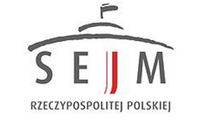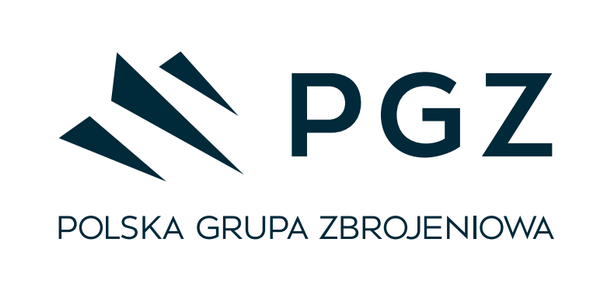The security situation in the region of Western Pomerania - Nobilis Media
Main menu:

The security situation in the region of Western Pomerania.
Cooperation with the Office of National Security.
Causes of threats to the health, life and property of the population and the environment of great size on a large area of the West Pomeranian Province may be:
• natural disasters, floods, technical failures,
• epidemic,
• collective disturbance of public order,
• politico-military crises and consequently acts of terror,
While the first three points are obvious and reactions to them as overtraining through existing procedures and cooperation of the public administration, so much social tension and the threat of acts of terrorism may be a new phenomenon in connection with a significant relocation of refugees in the border areas in Germany and announcements of local authorities bristles on the readiness of their mass adoption.
The first group mainly of Syrian refugees - relocated from Italy and Greece and resettled from Lebanon - have hit the Polish in 2016. Despite the suspension of the decision by the government should be expected that in the near future Poland will not escape political pressure for a much greater involvement in the process of reception. Therefore, you should prepare for this situation.
Permission to organize in Poland by the Caritas humanitarian corridor for refugees from war-stricken countries expressed their bishops at 373. The plenary meeting of the Conference of the Polish Episcopate. He informed the director of Caritas Poland ks. Marian Subocz, church humanitarian organization starts working on the launch of a program that may soon take the first need.
Ultimately, our country has to accept approx. 7 thousand. people within two years. Timing for the adoption of 2016. Refugees in procedures for relocation and resettlement and a list of related activities of individual institutions includes "operational plan RP dot. Resettlement and relocation of refugees", who developed the inter-band. Western Pomerania can be a haven for the majority of them in the long-term forecast.
Western Province covers an area of 22 892.48 km2, or 7.3% of the Polish and is relatively sparsely populated. In December of 2014. In the region was home to about 1.7 million people (1,715,431). In terms of population it placed the Western Pomerania on the 11th place among 16 provinces. In the province's 65 towns and 3019 villages in rural areas. The largest in terms of population is Szczecin (407,180), followed by Koszalin (108,605), Stargard (68,922).
Most of the population (68.7%) lived in cities. A similar situation is in the border areas in Germany. Germany already in sparsely populated areas in Brandenburg (mainly Szwedt and Prenzlau, but around), and Mecklenburg - Western Pomerania relocates significant amounts flowing into them refugees. Such accumulation of refugees on both sides of the border will give rise to tensions, as long as they gathered in designated "ghettos" without a plan for their assimilation.
The problem may be the long-term tension between the incoming immigrants osiedlającymi in cities and local communities. This may result in vandalism, arson, beatings. It is necessary to long-term education policy, which to some extent tame tensions related to the religious and cultural distinctiveness immigrants.
The causes of tension in the region of West Pomerania in the coming years.
This situation is the aftermath of the crisis - political military in Syria, whose consequences affect not only the Middle East region, but the whole of Europe in the form of a wave of refugees and the increasing number of acts of terror. Poland is not currently active (militarily) participant in the antiterrorist coalition and no armed forces involved in the Middle East, apart from minor involvement in the training of Afghan National Army troops. It takes, however, the exchange of intelligence information at the level of NATO and the European Union. Fall, however, more and more statements about greater involvement of the Polish activities in Syria. Potential commitment applies to sending the conflict area and the guided missile frigate,
The main objectives of terrorist organizations remain France, United Kingdom, Spain and Germany. Mainly this is due to the growing number of Muslim minority and existing in connection with the logistics of such activities. The analysis of the Pew Research shows that the Muslim minority in all European countries accounted in 2014. About 6 percent. of the total population (this means that since 1990. It has grown by about 2 points. proc.). Pew predicts that by 2030. It will increase to 8 percent.
Most Muslims is on the areas where they live for generations, so in Bosnia and Herzegovina, Albania, Bulgaria, and Russia. When it comes to Western Europe, the most numerous group of followers of Allah live in France, where their number reaches 4.7 million, which is 7.5 percent. the country's population. Relatively numerous Muslim minorities also Belgium (6 per cent.), Austria and Switzerland (by 5.7 per cent.).
For comparison, in Poland, the followers of Islam is according to various estimates from 15 to 25 thousand., Which is less than 0.1 percent. the population of our country. That will change with the influx of refugees into Polish and will largely affect Western Pomerania because of the clear declarations of local authorities about the readiness of their adoption if there are EU funds and government.
The reason for increased interest in the Muslim region of Western Pomerania may be an increase in anti-Islamic sentiment as seen in Germany, where the growing popular movement Pegida (Patriotic Europeans against the Islamization). Visible is also an increase in acts of violence and vandalism directed at immigrants. Another factor encouraging the refugees to settle in Western Pomerania, it increased financial assistance for refugees settling in the region from the EU and the government. In determining the level of financial support for refugees should take into account the income of the local community. A large disproportion in fact may cause dissatisfaction among the local community due to the high unemployment and large areas of poverty.
What are the risks in the region of Western Pomerania?
A characteristic feature of the modern European Union is the emergence of terrorism, religious - fundamentalist. Modern terrorism is therefore the "blind terrorism" and the goal of the perpetrators is to cause maximum casualties and great damage. As important differentiators of the "new terrorism", can be considered:
• acts of violence are directed to cause the greatest possible losses and are "bumps in the crowd"
• it is not possible to distinguish high-risk groups, all are at risk to a similar degree.
In this logic is part of a long string of violent acts of bombing with gas sarin conducted in the Tokyo subway by the sect Aum, by blowing up a federal building in Oklahoma City and the attacks on the World Trade Center and Pentagon after the attacks on Madrid's rail feeder and London metro, the recent terrorist attacks in Paris, or shooting in Orlando, where 50 people were killed and as many wounded. The bomber Omar Mateen pledged allegiance to you earlier Islamic. Today measure of effectiveness of a terrorist attack is no longer achieve a specific goal, but the interest of the media. A similar situation occurred during a terrorist attack using a truck in Nice.
Seaside, mass events.
Particular danger of such a "blind" attack in the short-term concerns WYD, but also the seaside in the high tourist season. This applies to hotels crowds visited by German tourists. Germany militarily since joined the fight against the Islamic State. In the coastal area threatened suicide attack, a single Islamic militants may also be a large mass events. Mass events like: open concerts, game stadium or indoor muse be under the special protection given to the changing tactics of terrorist activities involving the suicide attacks in order to kill the largest possible number of people and trigger media interest.
"New terrorism" is seen as a phenomenon that animators are deprived of moral brakes, as guided by their religious motifs. Consequently, it disappeared also the last mental barrier resisting the perpetrators before relying on weapons of mass destruction. Today The use of such weapons is limited only to the possibility of acquiring and technical reasons. These issues are monitored by the spec, however the service of NATO countries, and the exchange of information is transnational. Similarly, threats to critical infrastructure.
Educational tasks.
"Blind terrorism" is seen today as a phenomenon whose performers are deprived of moral brakes, as guided by their religious motifs. Therefore, in the event of such action to the Polish territory, or the region does not have groups "reduced" and "increased risk." The entire population is at risk to a similar degree. Therefore, prevention and active preventive measures also fall on the citizens, and not only in the service of the state or local government. It is necessary to build trust civil public institutions.
Therefore, it seems necessary to take the broad educational activities at schools and municipalities regarding the increasing threats and foster understanding among the citizens of the ways of public administration in this area in case of simulated threats.
In Poland, due to increased interest in the subject appear in person, such as the case of the so-called. "Bomber Wroclaw" not associated with any ideology that through such acts of terrorism may seek media attention because of deep deficits personality for themselves. In such cases, individual reactions are needed. The situation with the so-called. "Bomber" in Wroclaw indicates that it is also necessary to verify certain procedures safety and emphasis on broad education of potential hazards and to notify them.

Fast contact:
mobile +48 512 488 229
e-mail: biuro@nobilismedia.pl

The account number for orders:
Name of bank: BNP PARIBAS BANK OF POLAND
account nr: 79 1600 1260 0004 0907 3757 5001

Contact details:
Nobilis Media sp. z o.o.
ul. Kopańskiego 19/21. 71-050 Szczecin POLAND
NIP: 8513102112













